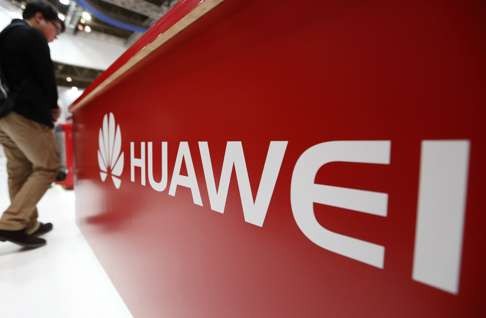
Samsung sues Huawei in China for infringing six of its patents
Smartphone rivals compete fiercely across the world in an industry estimated to be worth $332 billion this year
Samsung Electronics is suing China’s Huawei Technologies for patent infringements in China, escalating a legal conflict between the smartphone rivals.
The suit mark the latest salvo in a fight between the world’s No.1 and No.3 smartphone makers, who compete fiercely across the world in an industry that researcher IHS says is worth $332 billion this year.
The South Korean firm sued Huawei in a Beijing court about two weeks ago, claiming the Chinese firm was infringing six of its patents, although it did not specify the types of patent or the other Chinese courts involved.
“Despite our best efforts to resolve this matter amicably, it has regrettably become necessary to take legal action in order to defend our intellectual property,” Samsung said in a statement.
A spokesperson with Huawei Technologies confirmed the company had not received a formal complaint, but would defend itself if necessary.
In May, Huawei slapped Samsung with a patent infringement case, alleging the South Korean company had violated 11 patents regarding 4G mobile-related technology and some software on Samsung handsets.
Samsung is [suing] to protect its patents and remain competitive... Huawei has been doing well internationally and has eaten into some of Samsung’s market share
Samsung’s intellectual property chief Ahn Seong-ho said at the time that Samsung would “stand firm” against Huawei and may counter-sue.
Earlier this month, Huawei continued its legal pursuit against Samsung, suing its Samsung (China) Investment unit on the Chinese mainland for infringing its mobile terminal and display-related processing methods patents on a range of smartphone models.
Chinese technology companies have often been on the receiving end of such lawsuits, so Huawei’s US litigation marked something of a reversal of roles reflecting its growing clout in the global telecommunications and smartphone markets.
Xiaohan Tay, senior market analyst with research firm IDC, said that while both companies are seeking compensation and protecting their intellectual properties, these are likely minor reasons for the dispute.
Additional reporting by Reuters

“Huawei has been doing well internationally and has eaten into some of Samsung’s market share.”
Huawei became the first Chinese handset vendor to ship more than 100 million smartphones in a year in 2015 when a 44 per cent jump in its shipments defied a market slowdown.
Tay expects an uptick in the number of legal cases among international smartphone makers and Chinese vendors, especially as more Chinese smartphone brands such as Xiaomi, Vivo or Oppo look towards overseas expansion following a slowing of the smartphone market at home.
“Chinese vendors in general tend to have less patents than big players like Samsung and Apple, and this is something they need to work on acquiring if they plan to expand globally,” Tay said.
CIMB analyst Lee Do-hoon said neither Samsung nor Huawei was likely to be motivated by monetary compensation from the legal battle, and expects both firms to reach a deal such as a cross-licensing agreement.

